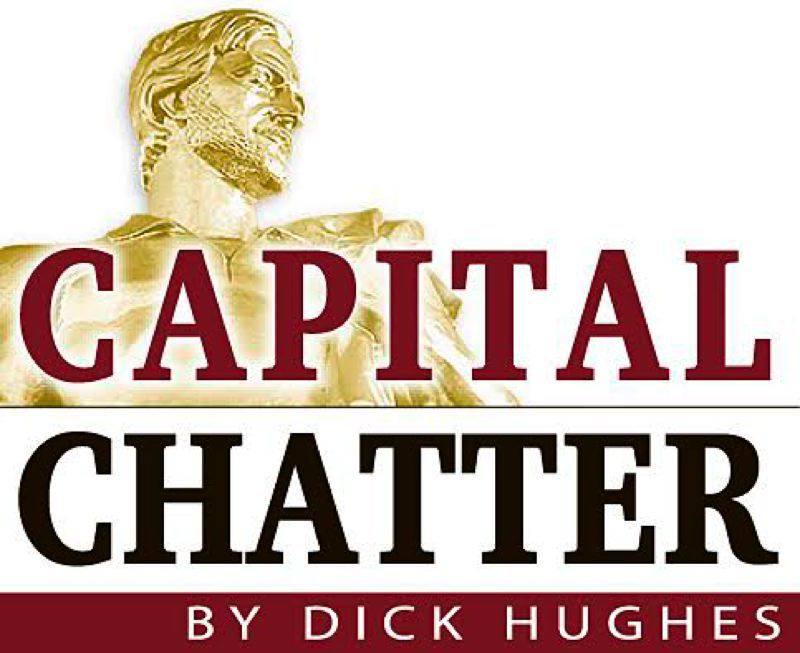Capital Chatter: The Legislature loses its tax expert
Published 8:00 am Thursday, November 30, 2017

- Capital Chatter: All sides waiting for Brown to lead
As a kid, did you ever get lost in a store and worry until you found your parents in an aisle nearby? State Economist Mark McMullen said that’s how he feels about Legislative Revenue Officer Paul Warner.
Warner is retiring Dec. 1 and McMullen already feels lost because Warner is the granddaddy of state economists. Warner headed the Legislative Revenue Office since 1999, and before that was Oregon’s state economist. Another former state economist, Tom Potiowsky, who recently retired from teaching economics at Portland State University, joined legislators and Revenue staff in honoring Warner on Wednesday.
The Oregon Legislature is unusual in that its tax, budget, legal and policy offices are bipartisan, instead of Republicans and Democrats having separate staffs as is the case in Congress. Warner and his staff had to be both nonpartisan and trustworthy in their work.
• Serving 90 bosses: House Revenue chair Phil Barnhart, D-Eugene, noted that Warner liked interacting with the public — sometimes traveling long distances to give presentations on tax issues — as well as the 90-member Legislature.
“This job is a difficult one because you’ve got 90 masters,” Barnhart told Warner. “All of whom have different ideas about what we ought to do. All of whom have some really great ideas and some really screwball ones.”
Perhaps the best line came from House Revenue committee member Cliff Bentz, R-Ontario, when he told Warner, “I think your greatest trait is your ability take a perfectly idiotic question and change it into something that makes some sense. Not that you’ve ever had any of those questions from anyone on this panel.”
Then Bentz quipped that Warner might have a future in replacing Kellyanne Conway or Sarah Huckabee Sanders. (Conway is a White House counselor to President Donald Trump; Sanders is his spokesperson.)
Bentz went on to say, “The fact we can trust your answers is probably the most important thing.”
He and Barnhart praised Warner’s work on estate-tax legislation, which has enabled Eastern Oregon families to hang onto their ranches.
• Economists often off the mark: McMullen and Senior Economist Josh Lehner produced a chart showing how often Oregon’s state economists have accurately predicted state’s tax collections two years in advance. They invented a baseball-style metric — the Earned Kicker Average — using the state’s income tax “kicker” to quantify an economist’s accuracy.
“Given Oregon’s unique kicker laws, there is a very tiny window for which our office’s forecasts can hit the sweet spot. That happens when actual tax collections come in right at our forecast or slightly above it and yet below the kicker’s 2 percent threshold. Over the decades this has occurred just twice, one indication of how hard it is to hit the sweet spot,” McMullen said.
“Paul’s forecast errors are the lowest of any state economist in Oregon’s history. That said, Paul’s Earned Kicker Average, or EKA, was high at .700. What this means is that Paul underestimated revenues by more than 2 percent (the kicker threshold) on seven of his 10 Close-of-Session forecasts – five each for the personal kicker and the corporate kicker.”
• Lost knowledge: Warner’s departure illustrates the pros and cons of turnover, both in the Legislature and in the state bureaucracy. Some turnover is good, bringing in new ideas and fresh approaches instead of “we’ve always done it this way.”
Too much turnover is bad because it deprives Oregon of institutional knowledge that can prevent politicians and public employees from repeating past mistakes. Oregon was blessed to have Warner’s longtime institutional knowledge, as well as his expertise and reliability.
The Legislature will conduct a national search for his successor. In the meantime, Senior Economist Christopher Allanach will fill in as legislative revenue officer.
• How to deal with the press: Secretary of State Dennis Richardson on Wednesday issued a caustic announcement of his Audit Division’s report on the Oregon Health Authority. Within minutes, new OHA Director Patrick Allen and OHA Chief Financial Officer Laura Robison had scheduled a media availability for reporters to question them about the audit.
That is smart management. OHA gets to air its side while the press is still paying attention and while social media still are abuzz.
Despite the bad news that keeps trickling out regarding past financial missteps at the OHA, Allen continues to impress. He has the savvy to quickly go public with bad news instead of staying silent until he has all the details lined up.
I wish the Governor’s Office and all state agencies were similarly proactive. As an example, when word broke this summer about now-infamous management actions at OHA, it took the Governor’s Office several days to respond.
Dec. 1 marks the 90th day that Allen and Robison have been on the job at OHA. Allen laughed this week when asked how many hours he was putting in. “I’m on my email until about 10 o’clock at night and usually starting about 5 in the morning,” he said.
Dick Hughes, who writes the weekly Capital Chatter column, has been covering the Oregon political scene since 1976. Contact him at TheHughesisms@Gmail.com, Hughesisms.com/Facebook, YouTube.com/c/DickHughes or @DickHughes on Twitter.





